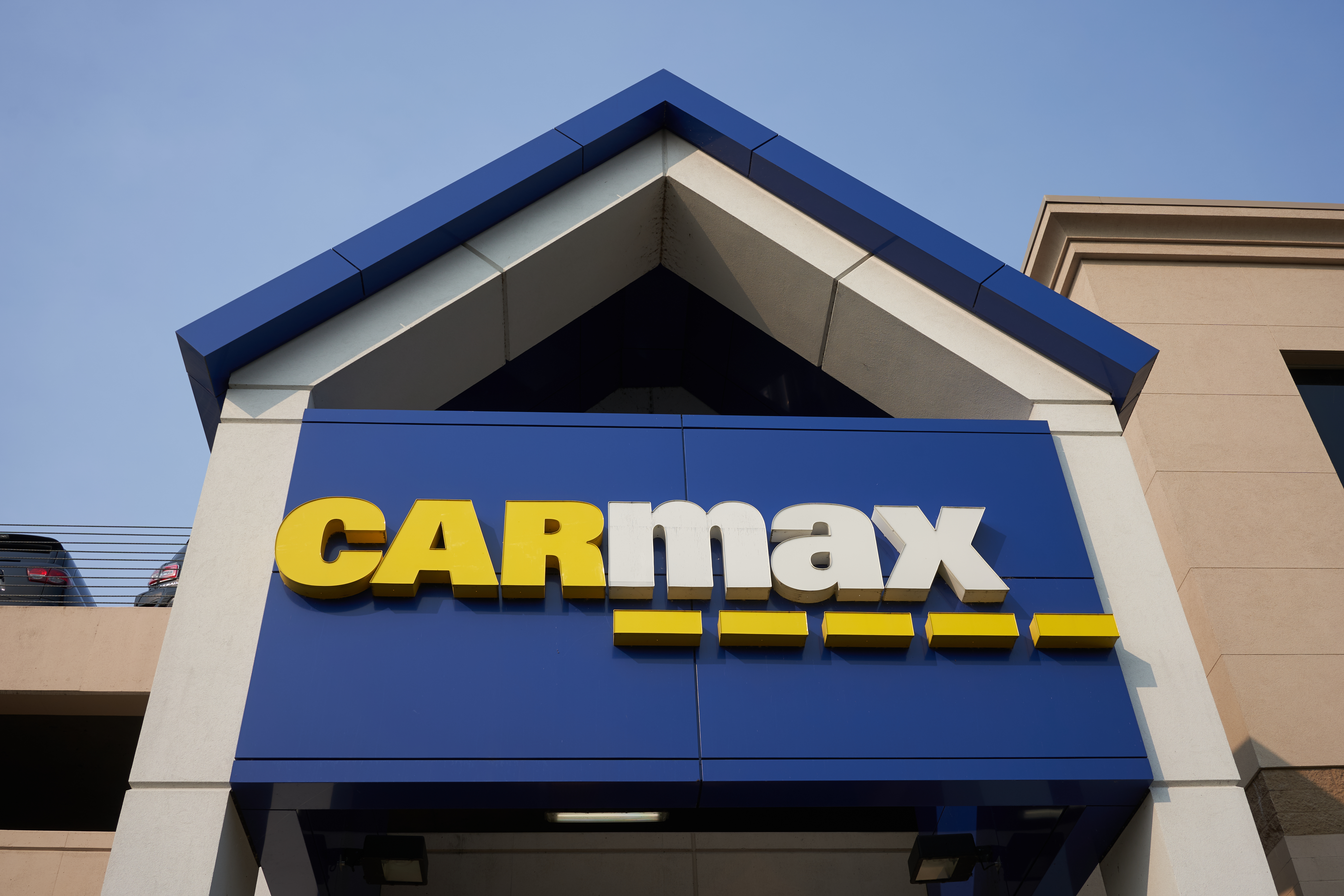CarMax Shares Tank Over 21% After Earnings Miss
Ticker Symbol: KMX
Car dealership company CarMax provided weak fiscal second quarter results and shares were trading down 21% in the mid-morning session. The company was also hit by multiple downgrades and price-target reductions by notable sell-side analysts. Automobile retailers had performed relatively well during the pandemic as both used and new vehicle prices surged, but current inflationary pressures are starting to bite into unit sales. CarMax shares have also underperformed the S&P 500, with shares down 48.2% on a year-to-date basis, versus the 23.5% decline in the benchmark.
Adjusted earnings per share for the second quarter came in at 79¢, versus the average analyst expectation profit of $1.40 per share, and $1.72 from the year ago period. Total revenue came in at $8.14 billion, versus the estimate of $8.56 billion and was up 2% year over year. CarMax’s main business division, used car sales, reported revenue of $6.28 billion, up 2.9% from the same period in 2021, but missing expectations of $6.43 billion. Wholesale vehicle sales were $1.69 billion, down slightly from last year, and below the $2 billion estimate.
As an illustration of the struggle dealerships are facing, unit sales in stores that were open for at least a year were down 8.3%, despite the 2% revenue uptick. Analysts were projecting a 6.2% increase in unit sales. The sharp decline in unit sales is indicative of how much prices have increased for vehicles over the past couple years. The company reported gross profit of $635.7 million from vehicle sales, with 78% of it coming from used vehicles. Analysts were expecting gross profit of $684.5 million, with the shortfall stemming almost entirely from the wholesale division.
Consumer sentiment in the U.S. has started to decline after the Federal Reserve hiked interest rates to 3.25 percent, the highest they have been since 2007. Most car sales in the country are funded by car loans, which would be more expensive given higher interest rates. Further, auto manufacturers such as GM and Ford have started ramping up production at their factories as some of the most severe parts shortages from the pandemic start to fade. The influx of new vehicles, high prices for used cars and a deteriorating retail environment could put further pressure on the financials of used car dealerships.
CarMax said it would open 10 new stores in fiscal 2023 and would look to improve its online offering. Shares for other dealers such as Lithia Motors, AutoNation, Asbury Automotive and Sonic Automotive were all down at least 9%. Online vehicle dealers such as Carvana, Shift and Vroom also saw their shares decline, with Carvana’s stock declining by over 21%. The largest online auto dealer has now seen its shares fall by over 91% since the start of the year, and close to 95% from the all-time peak in August of last year. Vroom shares are down 96% in the same period.
This content is provided for general information purposes only and is not to be taken as investment advice nor as a recommendation for any security, investment strategy or investment account.

